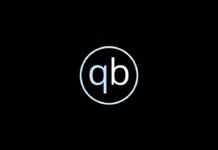As a starting entrepreneur, a small family business owner, or a startup team leader, you can use the best tools available to make your job easier. Emails and instant messengers for communication, project management tools for collaboration and planning, online storages, and document editors, etc.
Why Your Small Business Needs a CRM
But when it comes to the actual business management, one of the most important tools is often overlooked. “I don’t need a customer relationship management (CRM) systems”. But do you know what a CRM can actually do for you and your company? Let’s take a look at some of the advantages of a CRM system for small business.
CRM is designed for making business management easier
You might be using Google or Excel Sheets to store your client data, but how convenient that is? But you can’t search through them effectively. You can’t segment or group your customers by their purchases, location or their priority. Because sheets weren’t designed for customer management. They don’t have enough management features and they can’t put the necessary client data where and when you need it – during a call, meeting or while composing an email. It’s like writing a message in a text document, putting it on a flash drive and personally giving it to the addressee. Writing an email would have been 10 times faster.
It turns individual workers into a team
Your client data is one of the most important assets in your company. Your team is an another one. And they are essential to each other. Your teammates create a certain relation with the clients. But that’s a relation between a client and a company. Once an employee responsible for a certain client has to take a day off or leave entirely, other team members should be able to continue from where the conversation has stopped. Each team member should not be building the relationship with a client from the scraps. A small business CRM system is the source of the common knowledge, allowing you to provide employees with equal background on the client, helping them to collaborate, and leave a better impression of any company.
It’s more than just a client database
It doesn’t matter how much leads or potential clients you have if you’re not doing anything with the data on hands. CRM isn’t as much for storing data as for putting it to a good work. Some CRM systems provide a set of feature and functionality far beyond what’s considered to be a part of a CRM system. For example, NetHunt is a Gmail CRM system. Considering it’s integration with one of the best email services, it enables you to send mass email campaigns using the segmented customer data. With emailing capabilities playing alongside the CRM for inbox, it allows you to reach out to your clients with relevant and personalized messages.
CRM can be your main work hub
A CRM for small business isn’t just all about client or customer records. It’s also your project management software, activity dashboard, to-do list and a file storage hub. Your personal dashboard in a CRM system will provide a daily schedule, remind you about the calls you need to make today and the follow-ups which are marked for a certain date. It’s basically your main work organizer (instead of a calendar or notebook) providing you with the most up-to-date data, a log of recent events and urgent tasks you should pay attention to.
CRM is a powerful analytical tool
How fast can you tell how many of your deals are planned for a closure this month? Who was the best-performing employee? Who is the most profitable client? How long does it really take for a support case to get resolved? Well, a CRM system is designed to answer those questions and answer them quickly, with charts and statistics. Most CRM systems can provide you with detailed reports on the overall status of your sales pipeline, will help you to assess the team’s productivity, equally spread the workload and give you monthly, quarterly or yearly reports.
Conclusion
There are probably several reasons why you’re not using a CRM system. This might include price, integration with the other service your company uses, or a belief that your company is too small to use a CRM. What’s important is that there are hundreds of CRM solutions and if you’d like to get at least one advantage of the listed above, you should try out several systems and find the one which suites your needs best.





